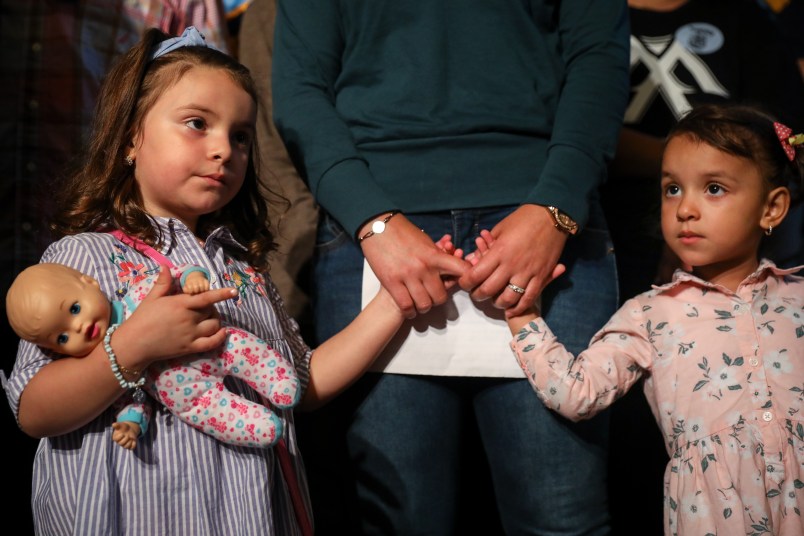MEXICO CITY (AP) — Although most of the 7,000 migrants in the caravan wending its way through far-southern Mexico are Hondurans, some Salvadorans have also joined. There is even a Facebook page and a WhatsApp chat encouraging Salvadorans to form a caravan of their own, though it is not yet known whether one will materialize.
It’s a small country both geographically and by population, home to 6.5 million inhabitants. The International Organization for Migration estimates that another 1.35 million Salvadorans live in the United States. El Salvador’s government puts the figure at as many as 2.5 million — but either way, Salvadorans make up the biggest community of Central Americans living in the United States.
El Salvador is the only country in the so-called Northern Triangle —which also includes Guatemala and Honduras —that experienced a reduction in migration in 2017, something that the government has noted in recent days in response to vows by U.S. President Donald Trump to cut U.S. aid to the region.
Even so, Salvadorans continue to leave their country. Their tales of hardship back home are not dissimilar from those of their Honduran neighbors. Here’s a look at what is driving those who migrate.
___
GANGS AND VIOLENCE
El Salvador’s homicide rate was 60 per 100,000 inhabitants last year, down from a grisly record of 102 homicides per 100,000 inhabitants in 2015 but still among the highest in the world. The two main street gangs, 18th Street and MS-13, are estimated to number around 70,000 and actively try to recruit new members.
The gangs trace their origins to street life in cities such as Los Angeles, where many Salvadorans sought refuge during their country’s 1980-1992 civil war. Salvadorans arrested for crimes in the U.S. were deported back home, bringing gang activity with them. The U.S. deported 1,241 Salvadorans for apparent gang activity in 2017, and 524 alleged gang members the previous year. Crime experts say today’s gangs have ties to international drug trafficking networks.
Trump frequently seizes on MS-13, or Mara Salvatrucha, as a reason to tighten immigration controls.
A quarter of young Salvadorans who flee do so because they are threatened with or fear violence. Young women are pressured to be “girlfriends” of gang members and face rape or murder if they refuse, while young men are pressured to join the gangs or risk death if they don’t. Two out of three Salvadorans never attend high school.
Young women are particularly vulnerable. Murders of young women peaked at 574 in 2015. Salvadoran law forbids termination of pregnancies, even in the case of rape, and establishes long prison sentences for abortion.
___
POVERTY
The International Organization for Migration says most Salvadorans migrate for economic reasons. Per capita income is $324 a month and nearly one in three Salvadorans lives in poverty, according to the World Bank, defined as less than $5.50 a day.
Many rely on remittances from family members abroad. Salvadorans in the United States sent $5 billion back home last year, amounting to nearly 16 percent of gross domestic product.
It’s tough to make a go as a small business owner in the country and create jobs for others. The gangs extort local businesses with impunity, and corruption is rampant. President Salvador Sanchez Ceren’s three predecessors were all prosecuted for alleged graft.
“Migration problems are structural problems of the country,” says Cesar Rios, director of the Salvadoran Migrant Institute. “If steady income is not guaranteed here — work and security — then people will continue to leave.”







Gangs and poverty are not going to be allowed as asylum claims. So, they will come here, and most will be denied. Better to arm them at home, and they can fight it out with the gangs.